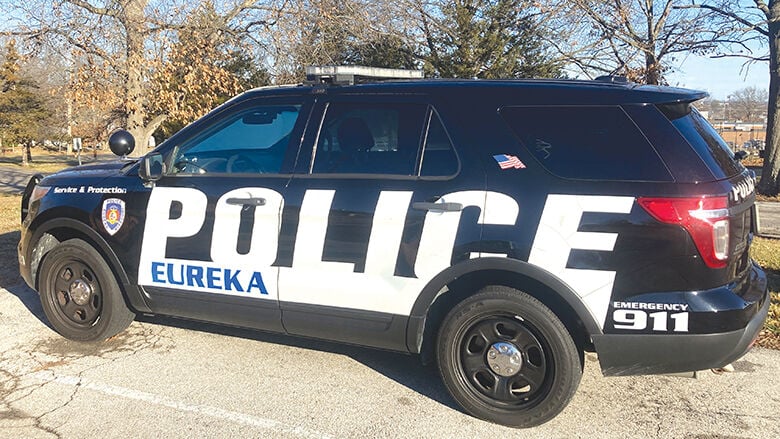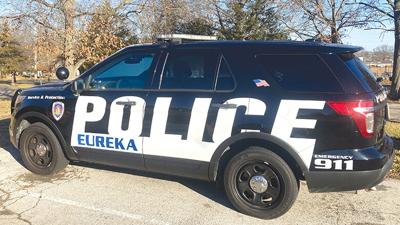The Eureka Police Department is among the first law enforcement agencies in St. Louis County to use a new system to communicate following a 911 call, Capt. Michael Werges said.
The system is called PowerEngage, which was developed by policy-management company PowerDMS. The system will send text messages to a 911 caller following a call for service to provide instructions on what to do while an officer responds, and it will send a text message to collect caller feedback about how the officer handled the situation.
“To us, transparency is incredibly important, and this is part of that transparency piece,” Werges said. “We want to reach out to people and ask how our officers are doing.”

Some 911 callers will receive follow-up text messages when contacting the Eureka Police for service as the department tests a new system to collect feedback and provide additional information following a call for service.
Eureka Police began using PowerEngage on April 16. The St. Louis County Police Bureau of Communications began using the system on April 29.
Werges said the system is being used on a limited basis to start. He said calls about vehicle accidents or motorists in need of roadside assistance will be some of the first to receive PowerEngage communication.
“We are starting on basic calls, but we are going to expand this to different calls,” he said. “We will not send a survey to someone we arrest, but we may send it to a victim.”
Werges said after a caller completes a call with a 911 dispatcher, they will receive a text assuring them an officer is responding.
The text will have additional instructions for the caller. For example, if the caller were in an accident they will be told to move the vehicle off the road if it is safe, or stay in the vehicle if it is not safe. The text also will tell the caller what information to have available for the officer such as a driver’s license and proof of insurance.
Werges said after the officer clears the scene, the caller will receive a follow-up text message asking the person to answer two survey questions. The caller will be asked to rate their level of satisfaction of how the officer handled the situation on a scale from 1 to 5, and the caller will be asked to provide feedback information about what they liked or disliked about their interaction with the officer.
“What is neat is the survey is very brief, and you can opt out right away,” Werges said.
Werges said he believes the first text is important because it provides additional assurance that an officer is responding, and the instructions should make the interaction safer for everyone.
He said the follow-up text serves two purposes.
Werges said officers and supervisors will benefit from the near immediate feedback about how a situation was handled.
“If an officer gets a poor rating, it automatically goes to a supervisor, who has to address it,” he said. “We are notified if the supervisor doesn’t address the issue. It allows the supervisor to ask what happened and what can we do better? If it is a positive comment, we will roll that through our station for the officers to see. If an officer did a great job, a message will be seen by our officers in real time.
“It is part of making sure we are providing the best service with the most transparency that we can.”
Werges said the follow-up text provides the caller with the name of the officer who assisted them and a link to the Eureka Police Department’s website, eureka.mo.us/Police.
“After the call, they will have access to the officer’s name if they need to call us with follow-up questions,” he said. “At the time of an accident, people may be frazzled and miss the officer’s name or they lose the card the officer gave them.
“The text has a link to our website, so they can get on that and learn about different things such as if they have a burglary at their house, they can sign up for a vacation check-in. It allows people to easily contact the police department if they have a concern.”
Werges said only 911 callers using a cell phone will receive the text messages.
“We can choose to follow up on our own (if) the number someone uses does not receive text messages,” he said.
Werges said the Eureka Police are working with PowerDMS for more of its reports. He said along with using the company’s software to store the department’s policies and the new feedback system, the Eureka Police would like to use PowerDMS for scheduling, tracking officers’ field-training performances, use-of-force reports, pursuit reports and other information.
Werges said the department currently uses different reporting systems for information.
“That is inefficient,” he said. “We want to be able to have a supervisor track one officer’s progress in one system. It allows us to have a very good understanding of how an officer is performing, and it allows us to see if there is something we can improve on. It also would allow us to see where our officers are doing well.”







